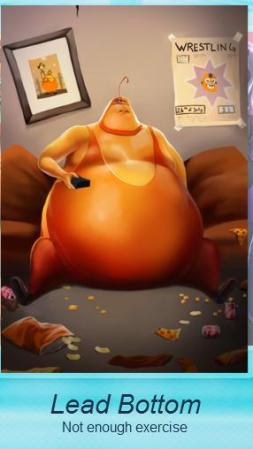 As I was reading articles about the Disney Fat Shame Ride and why it should be taken down, I noticed something that I’ve seen a lot before that bugs me. Articles would quote scholars – experts in the field of childhood development – and somebody, let’s call them “bully99” (since these folks so rarely put their actual names on their work) will say “This is a huge problem and we need to stop worrying about kids feeling good about themselves and start caring about them dying before their parents”.
As I was reading articles about the Disney Fat Shame Ride and why it should be taken down, I noticed something that I’ve seen a lot before that bugs me. Articles would quote scholars – experts in the field of childhood development – and somebody, let’s call them “bully99” (since these folks so rarely put their actual names on their work) will say “This is a huge problem and we need to stop worrying about kids feeling good about themselves and start caring about them dying before their parents”.
Now, I’m not saying that we should never questions experts in articles about health – I do it all the time- but if you are going to say that the National Institutes for Health are wrong, then maybe you should come up with some research of your own.
An article in the Calgary Herald mentioned that the Disney ride was opposed by the Binge Eating Disorder Association, National Association of Anorexia Nervosa and Associated Disorders, Canadian Obesity Network and then went on to quote a Medical Doctor, Professor and Two Dietitians, an expert and author on food, and the doctor who chairs the obesity research and management at the University of Alberta who called the exhibit “appalling on so many levels.”
One response in the comments said “Disney did a superb job creating awareness to this disease. Is a shame not well intended people with attention seeking victim syndrome personalities are trying to slander Disney’s efforts.”
I’m sorry but is this person a moron? Did they not read the article? Do they really think that the University of Alberta chair of obesity research and management has attention seeking victim syndrome?
I’m a little bit tired of hearing that these type of people are well-intentioned because I think that having good intentions means that you do a little research and that if this many experts disagree with you, you consider that you might be wrong and if you continue to espouse your opinion you back it up with some research. “Good intentions” do not excuse actively being an uninformed bully. If they weren’t so (choose all that apply):
- Lacking in intellectual humility
- Eager for the thrill of being mean to someone
- Excited about putting someone down so that they feel better
- In love with the sound of their own unsupported-by-research voice (or typed words)
- Likely to profit from fat shame and hate
- Ignorant of the benefits of their thin privilege
then they might take the time to see if there is a shred of evidence that supports their claims. If the commenters actually engaged in critical thinking they would realize that most of the experts in the Calgary Herald article are actively involved in anti-obesity efforts, so they are not Health at Every Size/ Size Acceptance people at all, and most of them are thin.
In fact, in other forums I would be pointing out that these experts have no evidence that any of their interventions are likely to lead to long-term body size changes. The truth is that we’re really not sure of anything, so we have to make our best choice based on the evidence, also weighing what will happen if we are wrong.
The evidence suggests that shaming kids about their weight leads to disordered eating (both under and over eating), low self-esteem, and bullying. The evidence suggests that promoting weight loss behaviors in kids predicts eating disorders and weight gain but not weight loss.
So if we follow the evidence we would choose to focus on health, and promote programs that encourage kids of all sizes to develop health habits. If we are wrong about that intervention then kids health is the same as it would have been without the intervention.
Or, we could ignore the evidence, focus on kid’s weight and promote shame-based weight-loss interventions (it should be noted that there is no evidence to support that this would work, but many people are currently promoting it anyway.) If we’re wrong, we end up with a generation of kids who are weight obsessed, have much higher incidence of eating disorders and are heavier and less healthy than they would have been had there been no intervention at all (which would seem antithetical if you buy into the idea that thinner bodies are more healthy bodies. I don’t, but the people who promote this particular intervention typically do.)
So, we’ve been employing this shame-based weight-focused paradigm for a while now and hospitalizations for eating disorders are up 119% for kids under 12. Eating disorders among boys are up. Girls are starting to be concerned about their body weight in kindergarten and the average age of dieting is 8. I hate to go all doctor Phil, but hey – how’s that working out for ya?
Sigrún Daníelsdóttir, Cand.Psych., Deb Burgard, Ph.D., & Wendy Oliver-Pyatt, M.D. from The Academy for Eating Disorders wrote fantastic evidence-based guidelines for Childhood Obesity Prevention Programs. Toronto Public Health already has a health-based program in place – it includes self-esteem as a component of heath, and suggests things like eating a variety of foods without guilt and making movement fun.
Hey look, over there, it’s a BIG FLAMING SACK OF DUH!
So there’s this contingent of people who think that shaming fat people, including kids, is a good idea, despite the fact that there is no evidence to support that and a mountain of evidence that suggests that it will do more harm than good. I suggest that it doesn’t matter if they have the best of intentions or if they are part of an evil plot to destroy the world because:
They are hurting us.
They are hurting our kids.
I’m all for providing people with information in a respectful way, and I’m all for letting people make their own choices for themselves. But when they’ve clearly been provided information (like, for example, having just read an article that contains a [group noun] of experts saying that shaming is harmful to health), and they are still arguing for shaming other people, who are not them, based on their own personal “tough talking” style and a complete lack of evidence, then I think it’s time to say that their good intentions have gone bad, stand up for ourselves, and start pointing out the deeply flawed logic.
This blog is supported by its readers rather than corporate ads. If you feel that you get value out of the blog, can afford it, and want to support my work and activism, please consider a paid subscription or a one-time contribution. The regular e-mail subscription (available at the top right hand side of this page) is still completely free. Thanks for reading! ~Ragen
 One of the things that the Georgia Project did was bring together some uneasy allies. People like Jillian Michaels and Alton Brown who regularly deliver an anti-obesity, fat=bad thin=good message, but who felt that the Georgia Fat Kid Shaming billboards went too far.
One of the things that the Georgia Project did was bring together some uneasy allies. People like Jillian Michaels and Alton Brown who regularly deliver an anti-obesity, fat=bad thin=good message, but who felt that the Georgia Fat Kid Shaming billboards went too far.











